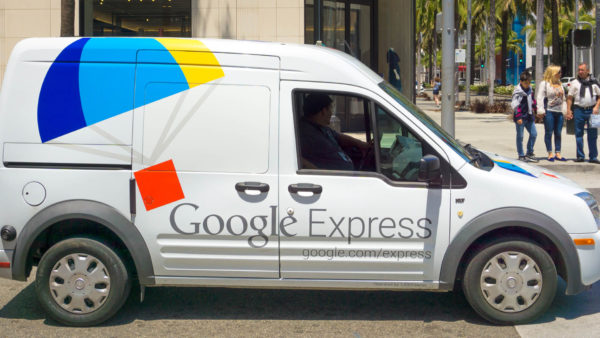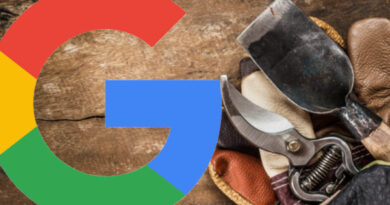The status of Google’s presence in Google Shopping Auctions
Google has long been visible in these auctions, not only through Express but also Play and Store. Contributor Andy Taylor evaluates its presence and assesses how it’s changed over time.
As my company (Merkle) reported just a couple of weeks ago, Amazon has exited US Google Shopping auctions for all advertisers that had consistently seen it as a competitor for the last few quarters.
While the rationale behind this decision remains somewhat of a mystery, those brands competing against the e-commerce giant are certainly not sad as a result of the recent development.
Shopping Actions
One update that may have played a role in Amazon’s decision was Google’s announcement of Shopping Actions in late March, which places ads for products that can be purchased through Google Express alongside traditional shopping ads in the carousel. Shopping Actions also surface products for voice shopping through the Google Assistant.
Google then takes a commission on each product sold, similar to Amazon, and many reports on the change hailed this update as a move to more directly compete with Amazon.
 100vw, 800px” data-lazy-src=”https://searchengineland.com/wp-content/seloads/2018/05/google_express_ads-800×420.png” /></p>
<p>Using Google Auction Insights Reports, however, it’s actually clear that Google Express had been a part of shopping auctions for nearly a year prior to the Shopping Actions announcement. Further, Google Play and Google Store also appear in shopping auctions for some advertisers.</p>
<p>What’s the status of Google’s presence in Shopping Auctions now, and how has it changed over the last few quarters?</p>
<h2>Google stepped up Express Ads in Q4 2017</h2>
<p>Taking a look at a sample of around four dozen retailers specializing in product categories ranging from home goods to electronics to apparel, over 80 percent have seen Google Express pop up as a competitor in Auction Insights at some point over the past year and some change.</p>
<p>For many of these advertisers, Google Express’s presence in Auction Insights is spotty and often falls below 10 percent impression share (IS) or out of the report completely for a given week. One way to trend Google Express’s presence is to note the percentage of the sample set which saw Google Express in Auction Insights for a given week.</p>
<p>Doing just that, we find that Google Express became much more prominent in Product Listing Ad (PLA) auctions during the holiday shopping season in 2017 and has continued to consistently appear in reports for more advertisers than was the case prior to Q4 2017. Google Express was not present in Shopping Auction Insights prior to April 2017 for the sample studied.</p>
<p><img class=) Shopping Actions in late March.
Shopping Actions in late March.
There have been some bumps in Google Express’s impression share against some advertisers since the end of March, but there have also been modest declines against other advertisers. While the signals are a bit mixed, many advertisers seeing bumps in Google Express impression share are tied to electronics, and some seeing declines in Google Express impression share sell home goods-related products.
Additionally, a couple of advertisers have seen Google Express for the first time over the past few weeks, but its impression share is limited, and the advertisers are loosely connected to electronics.
Of those advertisers that have yet to see Google Express as a competitor in shopping, some deal in product categories that are currently prohibited from being sold through Google Express, such as pharmaceuticals.
All told, it’s difficult to say Google Express’s overall prominence across product categories has changed much over the past few weeks since the announcement, and the general noisiness of Auction Insights figures makes such analysis a bit messy.
As such, the big announcement of Shopping Actions may have been more of a rebranding campaign than a hard turn in strategy, but it is still fairly early goings.
Express also isn’t Google’s only source of visibility in shopping, as Google Play and Google Store are also present for some advertisers.
Google Play and Store have a history of garnering shopping impressions
Both Google Play and Google Store have popped up in Shopping Auction Insights dating back to 2016.
In the case of Google Store, it mostly appears against retailers that sell electronics, naturally promoting Google’s Home and other devices. Its presence has been very limited, spotty, and only occasionally rises above 10 percent for a week here and there, making it very difficult to trend in graph form.
Google Play, on the other hand, is much more prevalent and consistent, appearing at some point in Auction Insights for more than 40 percent of the retailers studied across a number of different product categories. Users can download apps, music, books and more using Google Play, and thus, its presence is much more prominent on mobile devices, though it does appear on desktop computers as well in a limited capacity.
The types of advertisers that see Google Play as a competitor are varied in nature and include brands specializing in everything from home goods to electronics to gifts. In some cases, it’s not entirely clear what the overlap between Play and these brands is, but it might have something to do with the naming conventions of apps, movies and games overlapping with the names of products sold.
Looking at Play’s presence over time, it appears it became more prevalent in shopping at the beginning of 2018 and has remained in Auction Insights reports for more advertisers than last year.
 100vw, 800px” data-lazy-src=”https://searchengineland.com/wp-content/seloads/2018/05/google_play_competitors-800×358.png” /></p>
<h2>Conclusion</h2>
<p>With Google’s recent announcement and official rollout of Shopping Actions, it seemed as if Google Express might start appearing in PLA carousels more frequently. While some advertisers have seen an uptick in Google Express’s impression share over the past few weeks, others have seen the opposite. It’s not obvious that Google has definitively become more aggressive with its placement of these ad units just yet.</p>
<p>That very well might change, particularly if Google brings on more retail partners to sell products through Express. Increased user adoption of Express might also spur an expansion of Express ad units in the shopping carousel, as these listings are likely more appealing to those users which have ordered through Express previously.</p>
<p>Express isn’t the only Google property showing up in shopping results, as Google Play and Google Store are also regularly making appearances in Auction Insights reports.</p>
<p>In all of these situations, Google has to weigh the expected gain of a click on one of these ad units with the revenue lost from diverting traffic away from <a href=) traditional shopping ads that come with a cost-per-click (CPC).
traditional shopping ads that come with a cost-per-click (CPC).
For someone searching for the term [google home device], it seems like a no-brainer to show them Google Store listings in the PLA carousel. For someone searching for general furniture terms, on the other hand, it’s not as clear that a Google-owned property might net Google the best return on the query.



